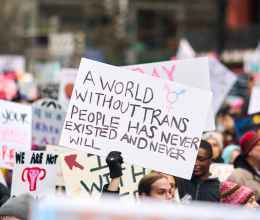In 2015 HUD issued the “Affirmatively Furthering Fair Housing” Rule, which requires jurisdictions receiving federal financial aid for housing to account for fair housing issues in their regular planning processes. This means that the jurisdictions would have to actively avoid urban planning that would lead to segregation, or unfairly impact peoples’ ability to buy or rent homes due to their race, color, religion, sex, family status, disability, or national origin. Ultimately, the Rule’s goals include building affordable housing in areas well-served by transit and prohibiting landlords from discriminating against people who use a government subsidy to pay part of their rent.
But in January 2018, HUD suddenly suspended the Rule’s requirement that local governments complete assessments that follow the guidelines in the Rule. This suspension was not the result of a notice and comment rulemaking procedure, which was why in May 2018 we filed a complaint, a motion for a preliminary injunction, and a motion for summary judgment, to challenge the suspension as a violation of the Administrative Procedure Act. The plaintiffs are the National Fair Housing Alliance, the Texas Low Income Housing Information Service, and Texas Appleseed. The case asks the court to order HUD to rescind the suspension and to implement and enforce the requirements of the Affirmatively Furthering Fair Housing rule going forward.
In late May 2018, HUD withdrew its January notice suspending the Rule. But at the same time, it withdrew the Assessment Tool that the Rule required local governments to use to complete their AFHs. HUD also told local governments that they still were not required to meet the Rule’s requirements.
As a result, we filed an amended complaint and a renewed motion for preliminary injunction or summary judgment. Various states and organizations filed amicus briefs in support of our position, including but not limited to a think tank that was involved in the development of the Rule, the states of Maryland, California, and Washington. The State of New York also filed a motion to intervene in the matter.
A month later, the government filed its opposition to our renewed motion for a preliminary injunction or summary judgment and opposed New York’s motion to intervene with the argument that New York lacked standing.
Chief Judge Beryl A. Howell heard arguments in August 2018, and later that month dismissed our case on the ground that the plaintiffs didn’t have standing to bring the lawsuit because they weren’t injured by the government’s action.
Rather than appeal, we asked the court’s permission to file a second amended complaint alleging the plaintiffs’ injuries in more detail. That motion was denied in August 2019 and we decided against an appeal.
